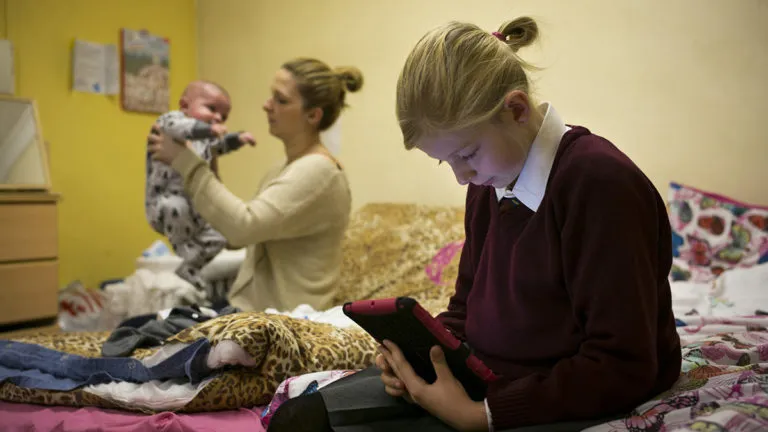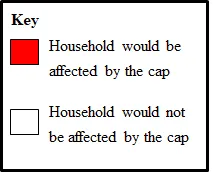The benefit cap is harming struggling families
Published: by Jo Underwood

At Shelter, our solicitors and many other legal aid housing lawyers frequently represent families who are struggling in unimaginable ways under the household benefit cap. This policy, introduced in 2013 and revised in 2016, caps the amount in state benefits that an individual household can claim per year. Many families affected by the cap are now at breaking point.
A grandmother who gave up work to care for her five grandchildren, only for her benefits to be capped because she can no longer work. She is now in rent arrears. A homeless young mother who fled severe domestic violence and was accommodated by her local authority. Her rent is higher than the capped housing benefit she receives and the council accept that makes the property unsuitable for her, but they cannot find anywhere else suitable with a lower rent in the area where she has a vital support network. Both are in a perpetual state of uncertainty and anxiety, worried about when they will have to uproot and move again.
When giving evidence to the Work & Pensions Select Committee, government minister Justin Tomlinson proposed various ways that families could avoid or reduce the impact of the benefit cap. The minister suggested that families who are capped could: 1) move into work 2) move to cheaper accommodation 3) negotiate a cheaper rent or 4) take in a lodger.
As we set out in our evidence to the Select Committee, the truth is that these are not real options for most.
Move into work
The minister remarked that some families are moving off the cap by entering into work. This may be an option for some, but the fact remains that the vast majority of capped households receive a benefit which indicates that they are not expected to work.
For example, they may be single parents with children under 2, or they are caring for children who cannot be looked after by their own parents.
Move to cheaper accommodation
Because the cap is now so low, moving to an area where rent is cheaper is a very limited option or impossible. Under the original cap there were some areas of the country where families could, in theory, move and not be capped. Since the cap was lowered in 2016, this is no longer the case for many families.
Proportion of England where one parent families would be affected by the benefit cap:
| Family Size | Original Cap | Revised Cap |
| 2 children | 4% | 22% |
| 3 children | 18% | 100% |
| 4 children | 55% | 100% |
| 5 children | 100% | 100% |
Under the original cap, a small family of one parent and two children in need of a two-bedroom flat would have been capped in central London locations only. They might have been able to move elsewhere in London, limiting the impact on crucial support networks.
But, under the revised cap even a small family like this would now be unable to avoid the cap in almost a fifth of the country.
For single parent families with three children, moving to avoid the cap is impossible: they are capped in every area of England:
Previous cap of £26,000 Present cap of £23,000 or £20,000


Negotiate a cheaper rent
Evidence shows that households have not been able to respond to the cap by renegotiating their current rent. A 2014 Ipsos MORI survey for the DWP found that just 1% of households who had moved off the cap had been able to negotiate a lower rent. In fact, rents have been rising since the cap was introduced.
With so many other barriers to accessing a private rental, families in receipt of benefits already struggle to find and keep a home, so their likelihood of being able to negotiate a reduced rent is very low.
Taking in a lodger
Most capped households are made up of single parents with children under 5. It would be extremely rare for them to have room to take in a lodger because both local housing allowance claimed by private renters and the Bedroom Tax in social housing don’t allow for spare bedrooms. Furthermore, tenancy agreements may not allow sub-letting of rooms.
But, most importantly, it may not be a safe or sensible option for families with young children to let a room to a stranger.
Government review
The benefit cap is forcing families into hardship, and for most there is no real option to avoid the cap. We therefore urge the Select Committee to push the government to review the benefit cap policy. At the very least, government must exempt families who will struggle to move or find work, such as homeless families in temporary accommodation and single parents with very young children.